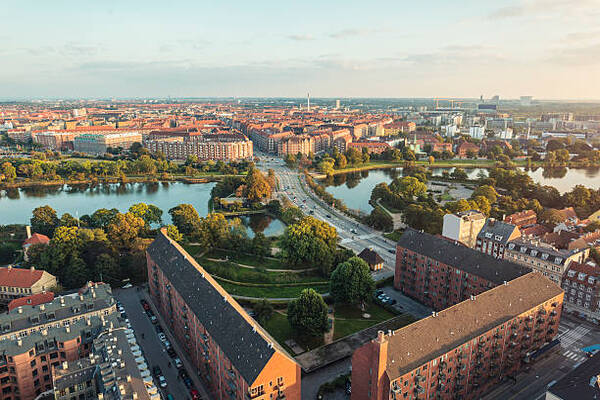≡-Denmark To Lead Charge For EU Migration Crackdown With New Presidency, Targeting Legal Reform And Asylum Processing Beyond European Border – Viral of Today
<> Viral of Today <>
Home » DENMARK TRAVEL NEWS » Denmark To Lead Charge For EU Migration Crackdown With New Presidency, Targeting Legal Reform And Asylum Processing Beyond European Border Friday, June 27, 2025Denmark to Prioritize Stricter EU Migration Policies During Its 2025 Council PresidencyAs it prepares to assume the rotating presidency of the Council of the European Union on July 1, Denmark is poised to advocate for a more hardline stance on migration across the bloc. The country plans to champion tighter migration rules, reforms to asylum procedures, and the introduction of legal restrictions intended to limit appeals in migration-related cases.Central to Denmark’s strategy is the belief that effective migration management is essential to strengthening the EU’s overall security and social stability. Officials argue that without a firm grip on migration flows, Europe risks continued strain on internal systems, including welfare and public services. As such, migration policy will be positioned at the core of Denmark’s presidency agenda, with a particular focus on border security and asylum law reform.One of the cornerstone proposals is the externalization of asylum processing, a policy that would see asylum applications handled in third countries outside of the European Union. This approach is intended to reduce pressure on member states while allowing for more efficient processing and quicker determinations on eligibility. In parallel, Denmark plans to promote a recalibration of the role played by the European Court of Human Rights, particularly in cases involving appeals against asylum or deportation decisions. The objective is to restore a greater degree of national control over migration-related legal matters.These policy shifts align with Denmark’s long-term aim of influencing a unified and more restrictive European framework on migration. Danish authorities argue that uneven burdens placed on member states, combined with inconsistent enforcement of EU migration rules, have created systemic inefficiencies that must be corrected through coordinated legislative reform.Recent diplomatic outreach efforts have seen Danish officials engage counterparts across European capitals in preparation for the presidency term. These discussions have focused on building support for a collective migration approach that emphasizes both security and sustainability. The groundwork has been laid for consensus-building around stricter rules, particularly on asylum procedures and return policies for individuals whose protection claims are no longer valid.Domestically, Denmark’s shifting demographics have played a major role in shaping its political direction on migration. From just over three percent in 1985, the proportion of residents with foreign origins has surged to more than sixteen percent by 2025. In response to this change, Danish policymakers argue that immigration controls must be reinforced to ensure the long-term viability of the nation’s welfare system, which provides extensive cradle-to-grave benefits.Although migration restrictions have tightened, the country has simultaneously faced increasing demand for foreign labor. Over the past decade, the number of work permits issued has more than doubled, particularly in response to shortages in healthcare, logistics, and other essential sectors. However, these permits remain conditional and are subject to swift cancellation if employment terms are violated or labor needs shift.In terms of refugee policy, Denmark issues initial one-year residency permits to those granted asylum, with options for renewal based on ongoing assessments of conditions in their countries of origin. Authorities encourage voluntary return once it is determined that individuals no longer require international protection, reinforcing a preference for temporary solutions over permanent integration.A notable example of this policy occurred in 2020, when Denmark rescinded the residency status of approximately two hundred Syrian nationals after concluding that parts of Syria, including Damascus, were sufficiently safe for return. The move drew international scrutiny but underscored Denmark’s intent to apply a firm, rules-based system for assessing asylum claims.Over the last decade, Denmark’s overall migration policy has shifted significantly. The country’s leadership has adopted positions more closely aligned with previous conservative governments, placing emphasis on national identity, social cohesion, and reducing non-Western migration. National debate has increasingly centered on the impact of immigration not just from an economic or security standpoint, but also from a cultural perspective. In recent years, concerns have grown that integration challenges may be affecting the social fabric of the country.As Denmark prepares to lead the EU Council, it intends to use its platform to shape a more coherent and controlled migration framework, pushing the bloc toward stronger enforcement, centralized decision-making, and policies that balance humanitarian obligations with national interests.
This information will surprise you!
See also
- Read until the end to discover everything.
- Important information you need to know.
- Interesting facts and helpful tips.
Conclusion
Did you enjoy the news? Keep following us daily!













